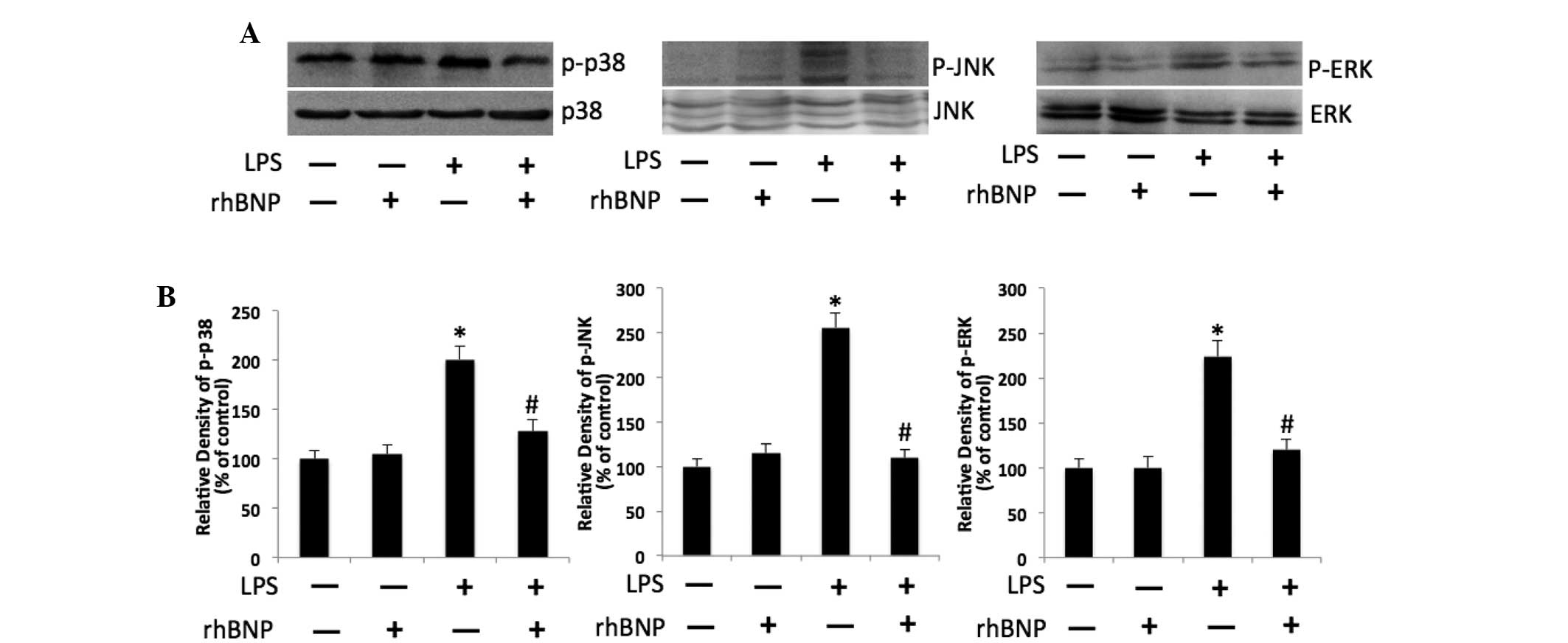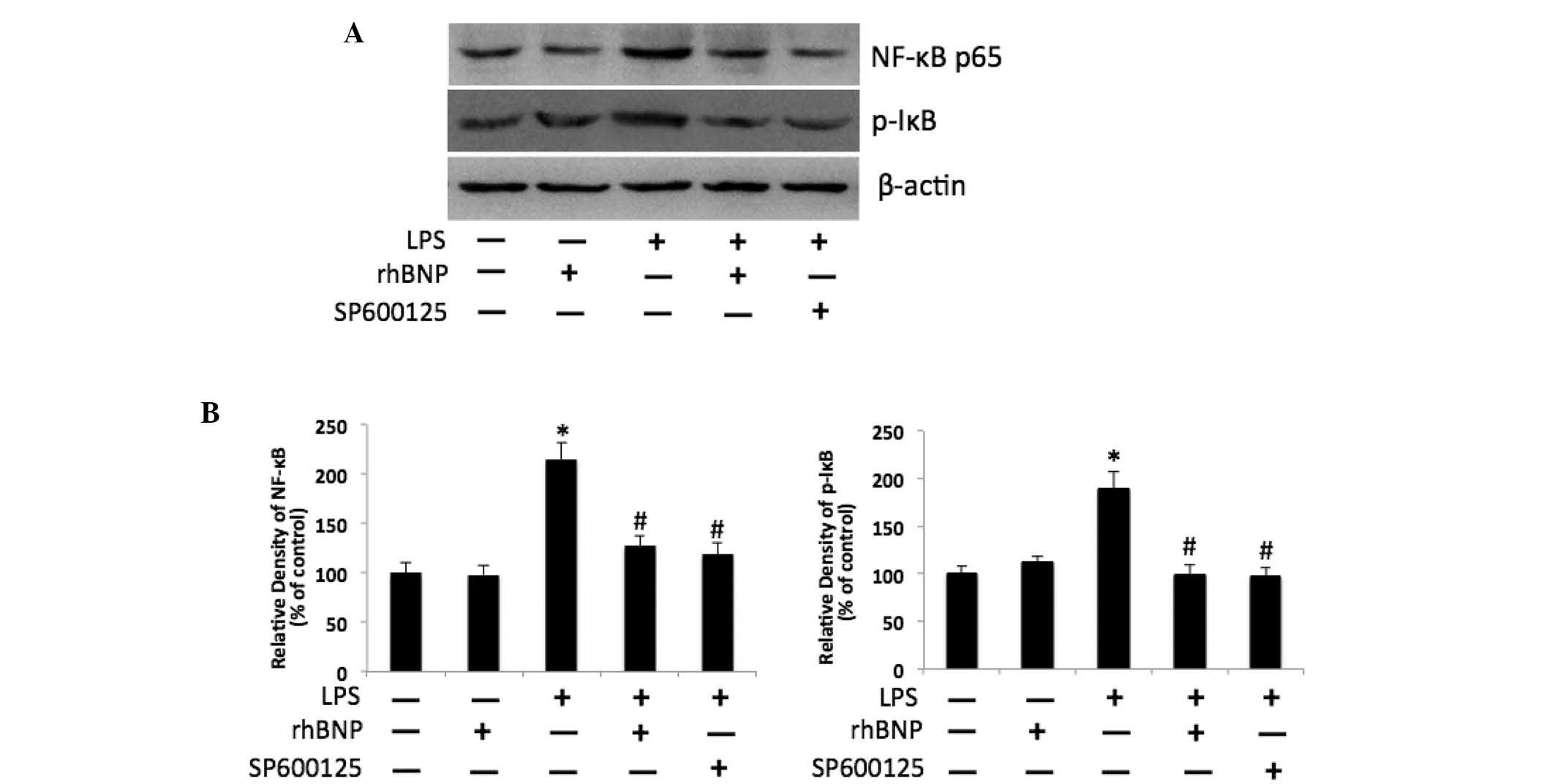|
1
|
No authors listed. Ventilation with lower
tidal volumes as compared with traditional tidal volumes for acute
lung injury and the acute respiratory distress syndrome. The Acute
Respiratory Distress Syndrome Network. N Engl J Mes. 342:1301–1308.
2000. View Article : Google Scholar
|
|
2
|
Matthay MA and Zimmerman GA: Acute lung
injury and the acute respiratory distress syndrome: Four decades of
inquiry into pathogenesis and rational management. Am J Respir Cell
Mol Biol. 33:319–327. 2005. View Article : Google Scholar : PubMed/NCBI
|
|
3
|
Buckley CD, Pilling D, Lord JM, Akbar AN,
Scheel-Toellner D and Salmon M: Fibroblasts regulate the switch
from acute resolving to chronic persistent inflammation. Trends
Immunol. 22:199–204. 2001. View Article : Google Scholar : PubMed/NCBI
|
|
4
|
Horowitz JC, Cui Z, Moore TA, Meier TR,
Reddy RC, Toews GB, Standiford TJ and Thannickal VJ: Constitutive
activation of prosurvival signaling in alveolar mesenchymal cells
isolated from patients with nonresolving acute respiratory distress
syndrome. Am J Physiol Lung Cell Mol Physiol. 290:L415–L425. 2006.
View Article : Google Scholar
|
|
5
|
Marshall RP, Bellingan G, Webb S,
Puddicombe A, Goldsack N, McAnulty RJ and Laurent GJ:
Fibroproliferation occurs early in the acute respiratory distress
syndrome and impacts on outcome. Am J Respir Crit Care Med.
162:1783–1788. 2000. View Article : Google Scholar : PubMed/NCBI
|
|
6
|
Maekawa K, Sudoh T, Furusawa M, Minamino
N, Kangawa K, Ohkubo H, Nakanishi S and Matsuo H: Cloning and
sequence analysis of cDNA encoding a precursor for porcine brain
natri-uretic peptide. Biochem Biophys Res Commun. 157:410–416.
1988. View Article : Google Scholar : PubMed/NCBI
|
|
7
|
Mueller C, Scholer A, Laule-Kilian K,
Martina B, Schindler C, Buser P, Pfisterer M and Perruchoud AP: Use
of B-type natriuretic peptide in the evaluation and management of
acute dyspnea. N Engl J Med. 350:647–654. 2004. View Article : Google Scholar : PubMed/NCBI
|
|
8
|
Lehr HA, Guhlmann A, Nolte D, Keppler D
and Messmer K: Leukotrienes as mediators in ischemia-reperfusion
injury in a microcirculation model in the hamster. J Clin Invest.
87:2036–2041. 1991. View Article : Google Scholar : PubMed/NCBI
|
|
9
|
Burger MR and Burger AJ: BNP in
decompensated heart failure: Diagnostic, prognostic and therapeutic
potential. Curr Opin Investig Drugs. 2:929–935. 2001.
|
|
10
|
Yamanouchi S, Kudo D, Endo T, Kitano Y and
Shinozawa Y: Blood N-terminal proBNP as a potential indicator of
cardiac preload in patients with high volume load. Tohoku J Exp
Med. 221:175–180. 2010. View Article : Google Scholar : PubMed/NCBI
|
|
11
|
Wang F, Wu Y, Tang L, Zhu W, Chen F, Xu T,
Bo L, Li J and Deng X: Brain natriuretic peptide for prediction of
mortality in patients with sepsis: A systematic review and
meta-analysis. Crit Care. 16:R742012. View
Article : Google Scholar : PubMed/NCBI
|
|
12
|
Li N, Zhang Y, Fan S, Xing J and Liu H:
BNP and NT-proBNP levels in patients with sepsis. Front Biosci
(Landmark Ed). 18:1237–1243. 2013. View
Article : Google Scholar
|
|
13
|
Yang H, Song Z, Jin H, Cui Y, Hou M and
Gao Y: Protective effect of rhBNP on intestinal injury in the
canine models of sepsis. Int Immunopharmacol. 19:262–266. 2014.
View Article : Google Scholar : PubMed/NCBI
|
|
14
|
Song Z, Cui Y, Ding MZ, Jin HX and Gao Y:
Protective effects of recombinant human brain natriuretic peptide
against LPS-Induced acute lung injury in dogs. Int Immunopharmacol.
17:508–512. 2013. View Article : Google Scholar : PubMed/NCBI
|
|
15
|
Li N, Jin HX, Song Z, Bai CZ, Cui Y and
Gao Y: Protective effect of recombinant human brain natriuretic
peptide on acute renal injury induced by endotoxin in canines. Cell
Biochem Biophys. 70:1317–1324. 2014. View Article : Google Scholar : PubMed/NCBI
|
|
16
|
Xu B, Xu ZF and Deng Y: Effect of
manganese exposure on intracellular Ca2+ homeostasis and
expression of NMDA receptor subunits in primary cultured neurons.
Neurotoxicology. 30:941–949. 2009. View Article : Google Scholar : PubMed/NCBI
|
|
17
|
Livak KJ and Schmittgen TD: Analysis of
relative gene expression data using real-time quantitative PCR and
the 2(−Delta Delta C(T)) Method. Methods. 25:402–408. 2001.
View Article : Google Scholar
|
|
18
|
Chiurchiù V, Izzi V, D'Aquilio F,
Carotenuto F, Di Nardo P and Baldini PM: Brain natriuretic peptide
(BNP) regulates the production of inflammatory mediators in human
THP-1 macrophages. Regul Pept. 148:26–32. 2008. View Article : Google Scholar : PubMed/NCBI
|
|
19
|
James ML, Wang H, Venkatraman T, Song P,
Lascola CD and Laskowitz DT: Brain natriuretic peptide improves
long-term functional recovery after acute CNS injury in mice. J
Neurotrauma. 27:217–228. 2010. View Article : Google Scholar
|
|
20
|
Kiemer AK and Vollmar AM: The atrial
natriuretic peptide regulates the production of inflammatory
mediators in macrophages. Ann Rheum Dis. 60(Suppl 3): iii68–iii70.
2001.
|
|
21
|
Moro C, Klimcakova E, Lolmède K, Berlan M,
Lafontan M, Stich V, Bouloumié A, Galitzky J, Arner P and Langin D:
Atrial natriuretic peptide inhibits the production of adipokines
and cytokines linked to inflammation and insulin resistance in
human subcutaneous adipose tissue. Diabetologia. 50:1038–1047.
2007. View Article : Google Scholar : PubMed/NCBI
|
|
22
|
Serhan CN, Brain SD, Buckley CD, Gilroy
DW, Haslett C, O'Neill LA, Perretti M, Rossi AG and Wallace JL:
Resolution of inflammation: State of the art, definitions and
terms. FASEB J. 21:325–332. 2007. View Article : Google Scholar : PubMed/NCBI
|
|
23
|
Chen Y, Zhou X and Rong L: Analysis of
mechanical ventilation and lipopolysaccharide-induced acute lung
injury using DNA microarray analysis. Mol Med Rep. 11:4239–4245.
2015.PubMed/NCBI
|
|
24
|
Lu Z, Ma Y, Zhang S, Liu F, Wan M and Luo
J: Transforming growth factor-beta1 small interfering RNA inhibits
growth of human embryonic lung fibroblast HFL-I cells in vitro and
defends against radiation-induced lung injury in vivo. Mol Med Rep.
11:2055–2061. 2015.
|
|
25
|
Wang Z and Tai HH: Interleukin-1 beta and
dexamethasone regulate gene expression of prostaglandin H
synthase-2 via the NF-κB pathway in human amnion derived WISH
cells. Prostaglandins Leukot Essent Fatty Acids. 59:63–69. 1998.
View Article : Google Scholar : PubMed/NCBI
|
|
26
|
Chen HH, Grantham JA, Schirger JA,
Jougasaki M, Redfield MM and Burnett JC Jr: Subcutaneous
administration of brain natriuretic peptide in experimental heart
failure. J Am Coll Cardiol. 36:1706–1712. 2000. View Article : Google Scholar : PubMed/NCBI
|
|
27
|
Burger AJ: A review of the renal and
neurohormonal effects of B-type natriuretic peptide. Congest Heart
Fail. 11:30–38. 2005. View Article : Google Scholar : PubMed/NCBI
|
|
28
|
Craig EA, Stevens MV, Vaillancourt RR and
Camenisch TD: MAP3Ks as central regulators of cell fate during
development. Dev Dyn. 237:3102–3114. 2008. View Article : Google Scholar : PubMed/NCBI
|
|
29
|
Song HY, Lee JA, Ju SM, Yoo KY, Won MH,
Kwon HJ, Eum WS, Jang SH, Choi SY and Park J: Topical transduction
of superoxide dismutase mediated by HIV-1 Tat protein transduction
domain ameliorates 12-O-tetradecanoylphorbol-13-acetate
(TPA)-induced inflammation in mice. Biochem Pharmacol.
75:1348–1357. 2008. View Article : Google Scholar : PubMed/NCBI
|
|
30
|
Chen Q, Huang Y, Yang Y and Qiu H:
Acid-induced cell injury and death in lung epithelial cells is
associated with the activation of mitogen-activated protein
kinases. Mol Med Rep. 8:565–570. 2013.PubMed/NCBI
|
|
31
|
Yoon WJ, Moon JY, Song G, Lee YK, Han MS,
Lee JS, Ihm BS, Lee WJ, Lee NH and Hyun CG: Artemisia fukudo
essential oil attenuates LPS-induced inflammation by suppressing
NF-kappaB and MAPK activation in RAW 264.7 macrophages. Food Chem
Toxicol. 48:1222–1229. 2010. View Article : Google Scholar : PubMed/NCBI
|
|
32
|
Beinke S and Ley SC: Functions of
NF-kappaB1 and NF-kappaB2 in immune cell biology. Biochem J.
382:393–409. 2004. View Article : Google Scholar : PubMed/NCBI
|
|
33
|
Beinke S, Robinson MJ, Hugunin M and Ley
SC: Lipopolysaccharide activation of the TPL-2/MEK/extracellular
signal-regulated kinase mitogen-activated protein kinase cascade is
regulated by IkappaB kinase-induced proteolysis of NF-kappaB1 p105.
Mol Cell Biol. 24:9658–9667. 2004. View Article : Google Scholar : PubMed/NCBI
|
|
34
|
Zhou Y, Zhang X, Tan M, Zheng R and Zhao
L: The effect of NF-κB antisense oligonucleotide on
transdifferentiation of fibroblast in lung tissue of mice injured
by bleomycin. Mol Biol Rep. 41:4043–4051. 2014. View Article : Google Scholar : PubMed/NCBI
|
|
35
|
Zhu T, Zhang W, Xiao M, Chen H and Jin H:
Protective role of andrographolide in bleomycin-induced pulmonary
fibrosis in mice. Int J Mol Sci. 14:23581–23596. 2013. View Article : Google Scholar : PubMed/NCBI
|
|
36
|
Dogra C, Changotra H, Mohan S and Kumar A:
Tumor necrosis factor-like weak inducer of apoptosis inhibits
skeletal myogenesis through sustained activation of nuclear
factor-kappaB and degradation of MyoD protein. J Biol Chem.
281:10327–10336. 2006. View Article : Google Scholar : PubMed/NCBI
|
|
37
|
Everhart MB, Han W, Sherrill TP, Arutiunov
M, Polosukhin VV, Burke JR, Sadikot RT, Christman JW, Yull FE and
Blackwell TS: Duration and intensity of NF-kappaB activity
determine the severity of endotoxin-induced acute lung injury. J
Immunol. 176:4995–5005. 2006. View Article : Google Scholar : PubMed/NCBI
|


















